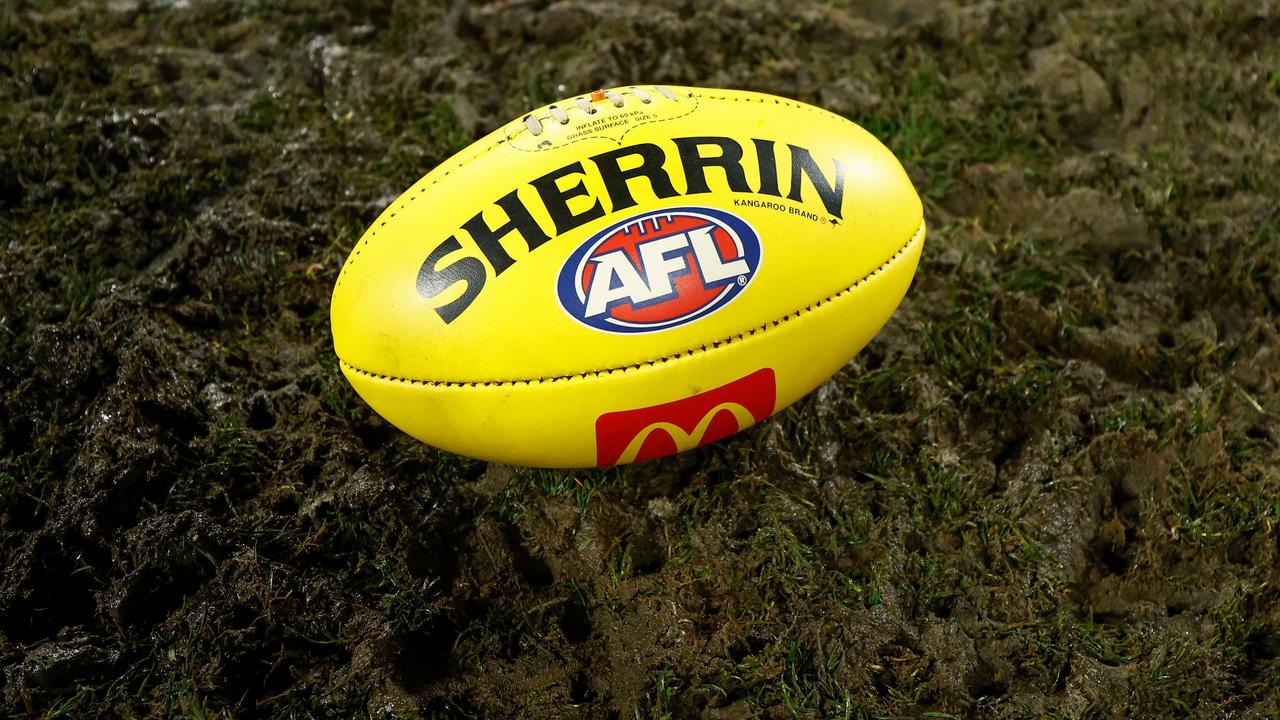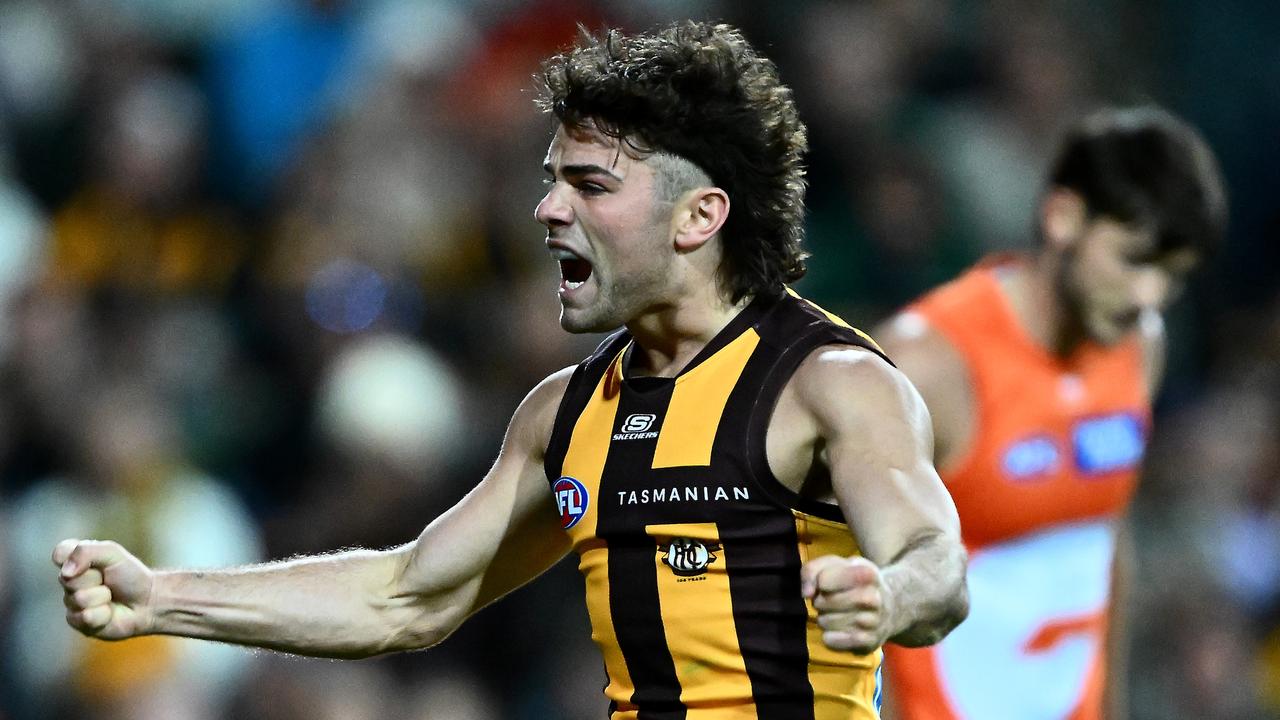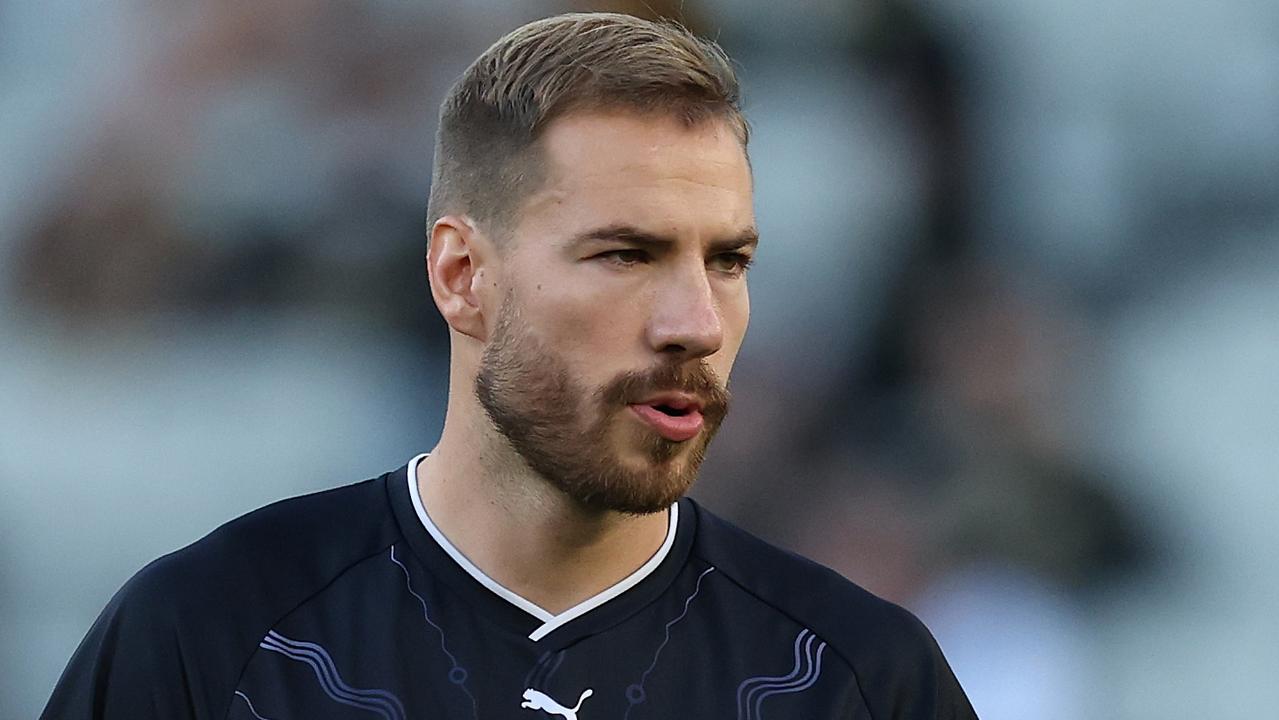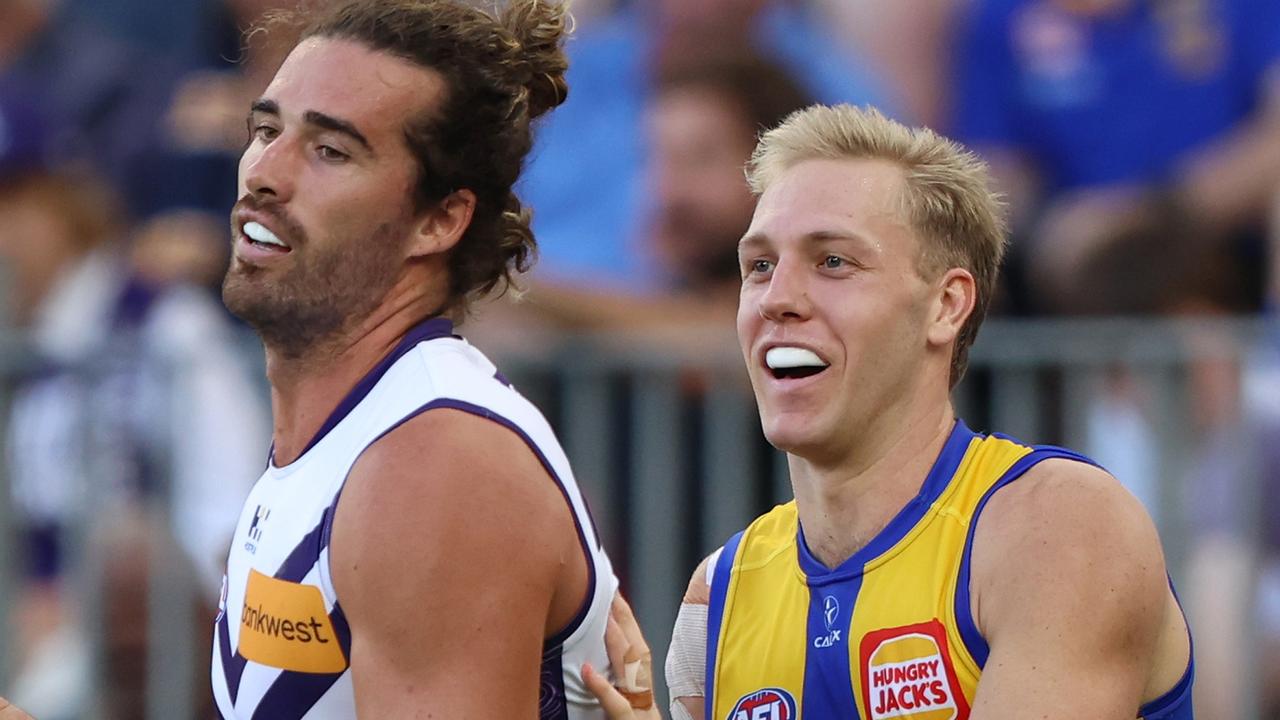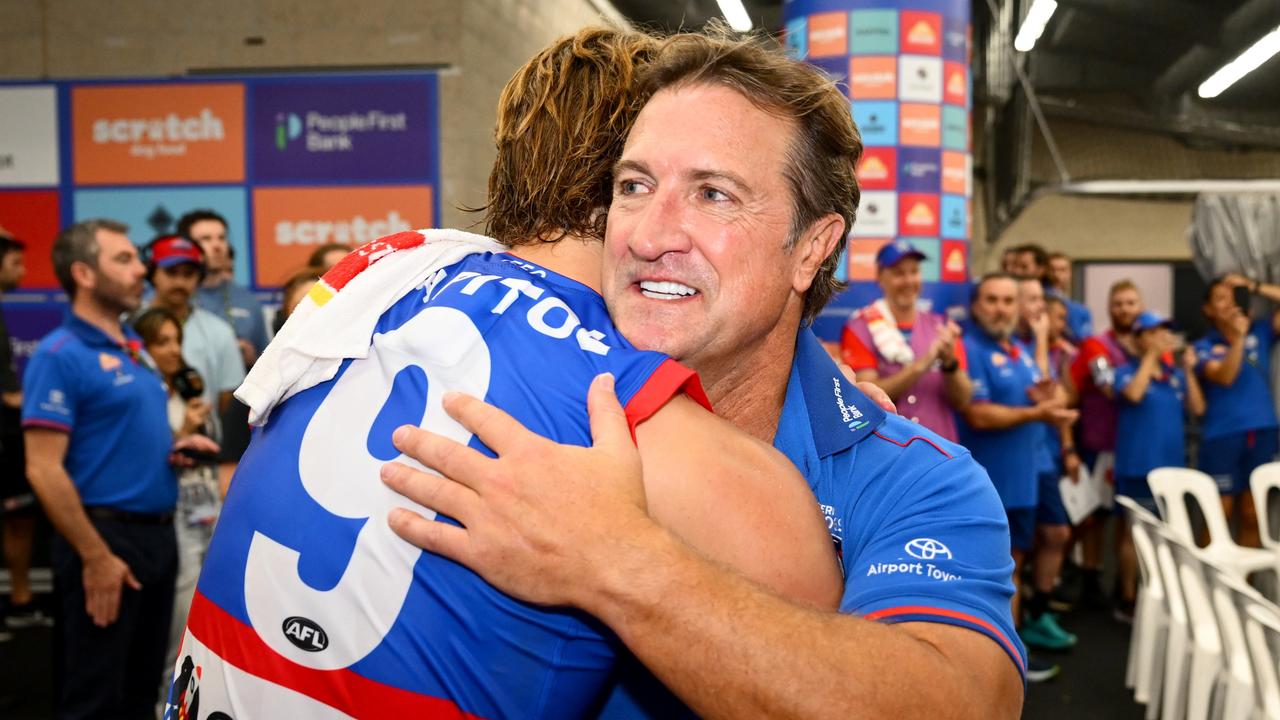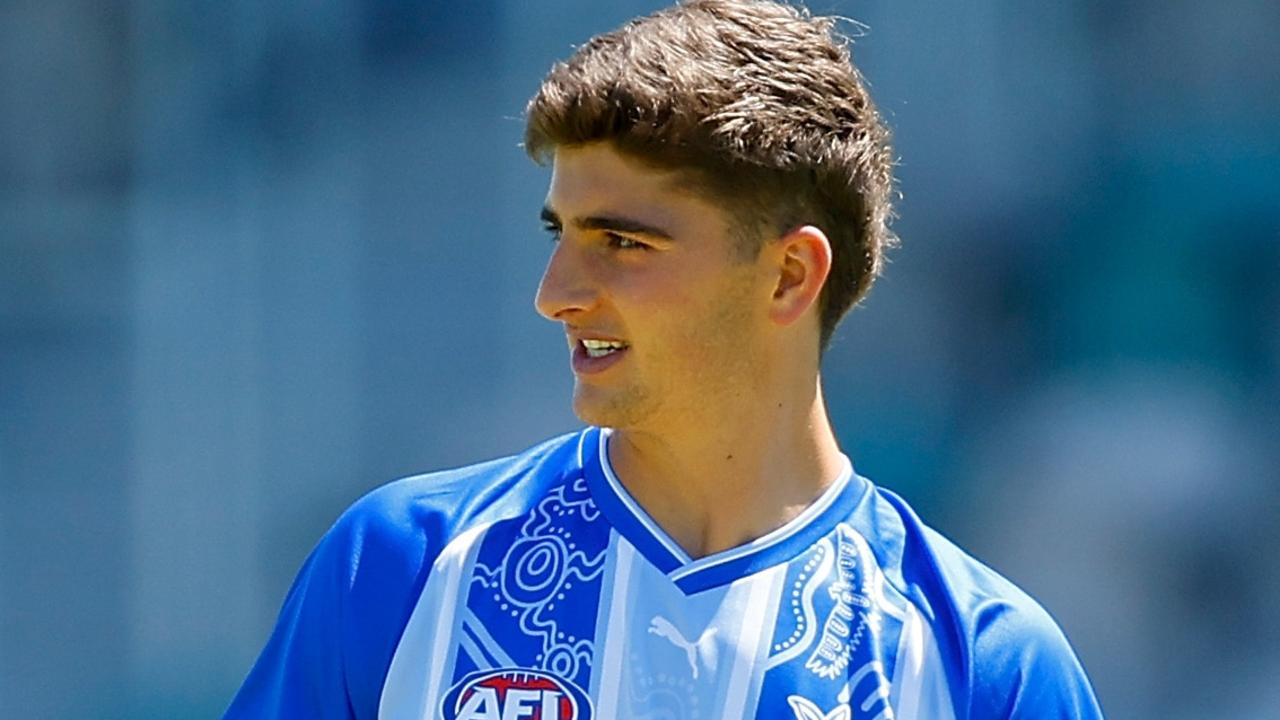Luke Beveridge’s journey to master AFL coach started in the VAFA with St Bede’s/Mentone
Luke Beveridge is on the verge of creating Western Bulldogs history. Not bad for a former tax office worker. This is the story of his rise from VAFA coach to premiership winner.
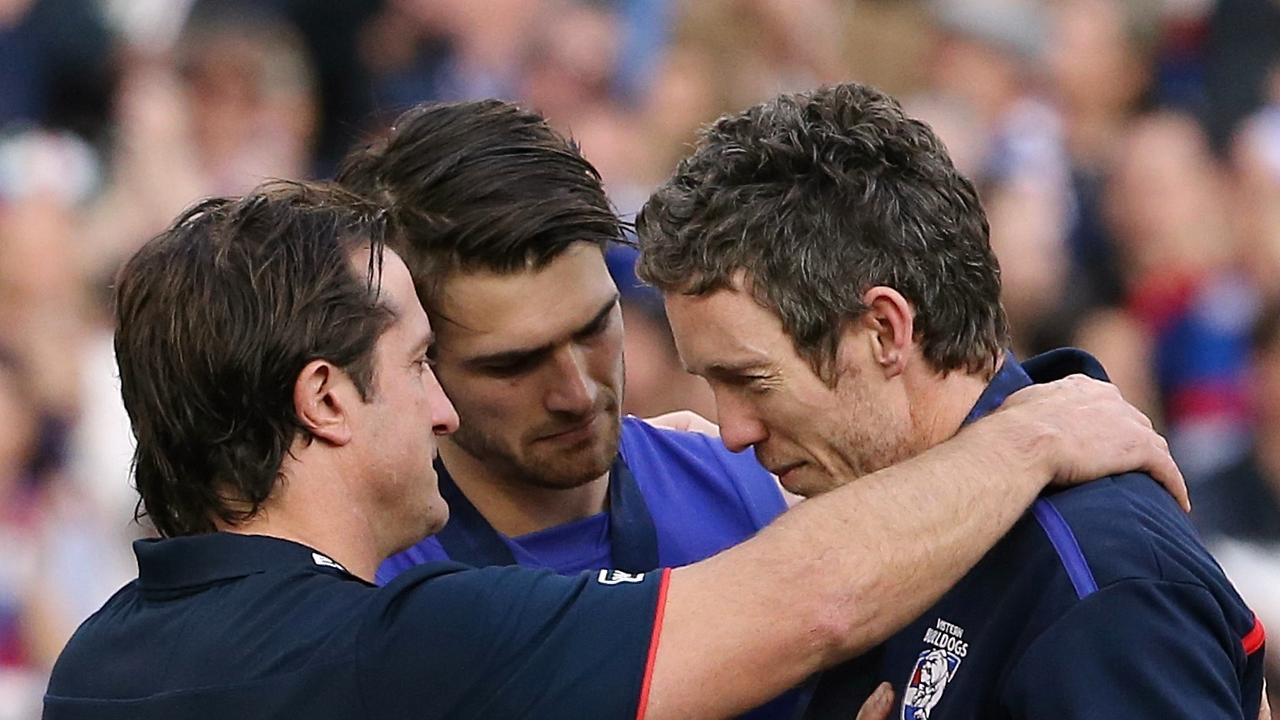
AFL
Don't miss out on the headlines from AFL. Followed categories will be added to My News.
He is a former tax office worker who has cited poetry and matched players with tarot cards.
He has used fixture requests to instil an us-against-them mentality and is a self-described hugger who has changed trainings to enjoy dinners with his team.
Now this compassionate left-field thinker is on the brink of another coaching miracle.
Luke Beveridge can on Saturday night become the Western Bulldogs’ first dual VFL/AFL premiership mentor and again achieve what none of his peers have under the competition’s modern finals system – win a flag from outside the top four.
If he does steer them to victory over Melbourne in Perth, the 51-year-old will do so using key traits that have been with him since the start of his senior coaching – at Victorian Amateur Football Association club St Bede’s/Mentone.
Beveridge joined the Tigers in 2005 as a playing assistant, six seasons after his 118-game, three-club AFL career ended.
Watch Fox Footy’s massive line-up of Grand Final week coverage on Kayo including live pre-game, halftime and post-game coverage with full analysis from the best team in the business. New to Kayo? Try 14-days free >
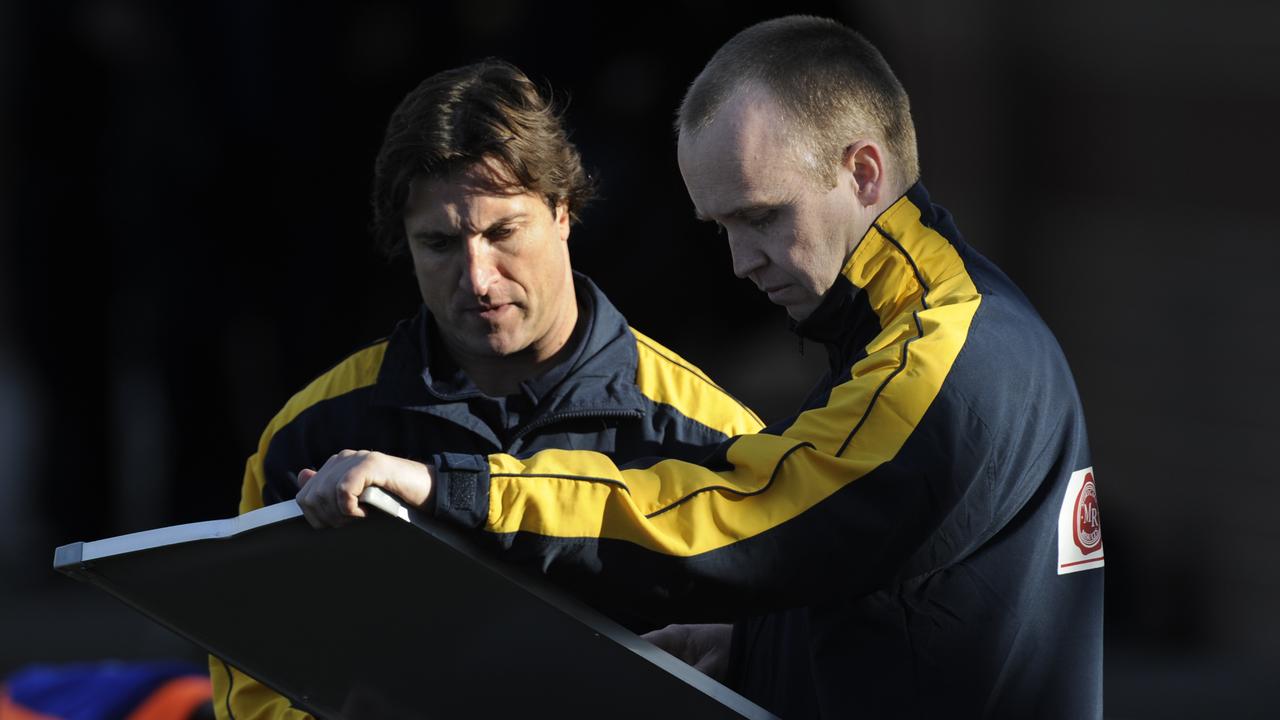
In 2006, he became their senior coach after they were relegated and immediately turned the club around, steering it to three straight flags in three grades: in C section, then Bs, then As.
Last year Beveridge told the Bulldogs’ Barkly Street podcast he did not initially have a desire to coach, rather was simply keen to immerse himself in a community club.
He had attended St Bede’s College and wanted to help players improve, but his passion grew when he got the senior job.
His ability to motivate his players, relate to them, care and think outside the box quickly became part of his kit bag.
“He’s brilliant at being able to put himself in the players’ shoes,” says Paul Groves, who played under Beveridge at St Bede’s/Mentone then coached the Bulldogs to the 2018 AFLW premiership.
“He understands where you’re at in your life, outside of footy and can work out ways to bring out the best in you on field.”
Groves sees lots of similarities in the way Beveridge is leading the Bulldogs and those successful St Bede’s/Mentone sides.
Among them is adopting the us-versus-them approach.
As a player, Beveridge was coached at Melbourne by John Northey who regularly employed that mentality.
Beveridge seized an opportunity early in his own coaching journey when amateur clubs had to nominate an away game that they wanted transferred to league headquarters – in Elsternwick.
A swag of rivals nominated the St Bede’s match because they considered their ground too small and too far away.

“It was well and truly put that we were the bogans from Mentone that all the private school teams didn’t want to play on our ground,” Groves tells News Corp.
“But that was ideal for Bevo.
“Because then it was ‘no one wants to come here but every team bar one has to play here, it’s a huge advantage for us’.”
The Bulldogs have had no shortage of doubters and hurdles this year that Beveridge can reference.
Plenty of pundits backed Essendon to knock them out in the elimination final after the Dogs lost a top-four spot and key forward Josh Bruce was sidelined with a long-term knee injury.
Add to that goalsneak Cody Weightman and tall defender Alex Keath missing the preliminary final, the team being prevented from having a captain’s run training on Adelaide Oval before its previous game and preparing for its fifth match in five states on Saturday.
“I firmly think there’s an us-versus-them philosophy to it,” Groves says.
“The us is ‘we control what we can in our group’ and to the outside commentary ‘it’s almost comical how hard you’re making it for us but we’ll respond, we’ll get everyone on the same page’.

“No doubt Bevo will mention something internally around the fact they’ve played more footy, they’re battle ready and how proud he is of them, and the empathy for their efforts.”
Groves says teams want to play for Beveridge because of his bond with them.
He built relationships early at St Bede’s/Mentone, not to go further in football, but because he genuinely cared about people and the community.
“You always felt he was in your corner,” Groves says.
There was no better recent example of that than when Beveridge leapt to Adam Treloar’s defence after the media criticised the ex-Collingwood midfielder for a poor semi-final.
“That comes on the back of him having intimate knowledge of where that young man is at that point in time in his life … because he’s taken the time,” Groves says.
“Bevo with Adam would’ve wanted to know more about family, everything outside of footy for the first six months.
“That backing for Ads, that backing for (No. 1 pick) Jamarra (Ugle-Hagan earlier this year) comes from a real protective place.
“It’s ‘I know more than anyone else knows about what this young kid’s dealing with and he supports them so they feel valued and can come out and produce the best in that environment.
“He has a tough exterior from a media point of view but that is to protect his players, protect his footy club and protect his family.”
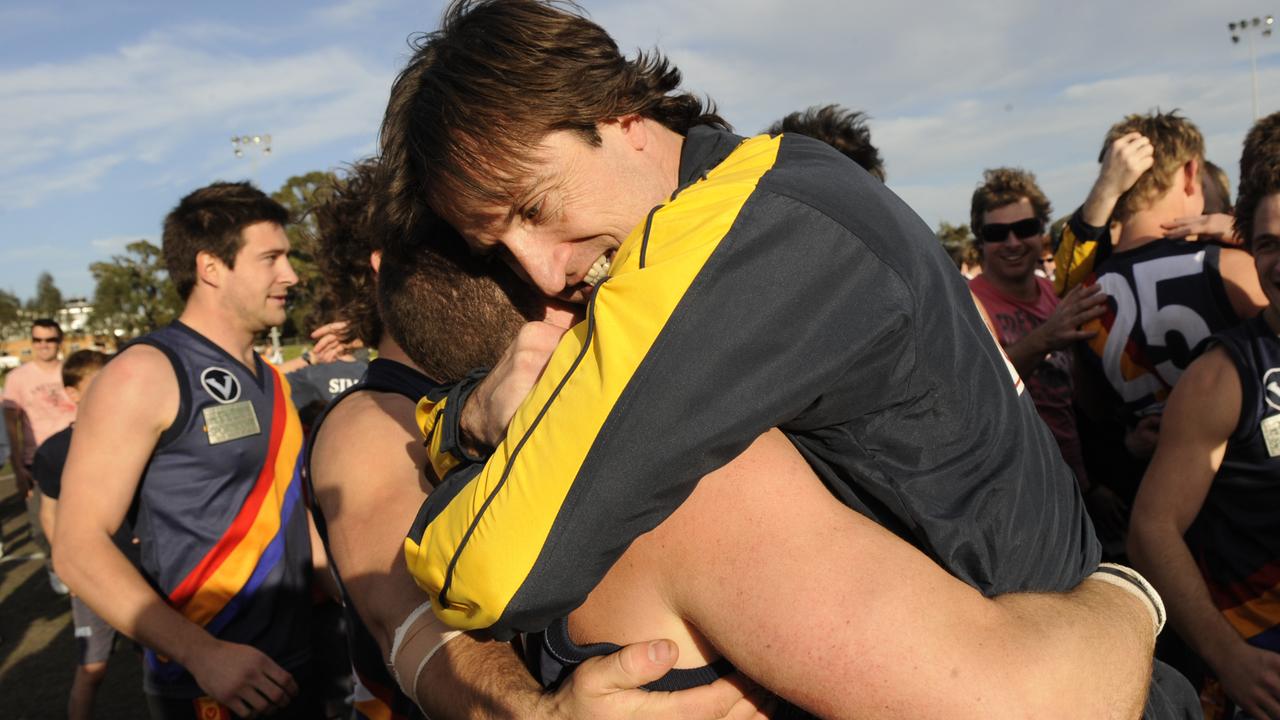
Beveridge has also kept faith in Josh Schache – the No. 2 pick in the 2015 draft who has been written off several times outside the Kennel.
Not only by picking the 24-year-old but giving him a key role in the preliminary final, in which he quelled star Port Adelaide defender Aliir Aliir.
Beveridge was “pretty honest” in his feedback about where players needed to improve when he conducted post-game reviews at St Bede’s/Mentone.
Group and individual video sessions were held via a big projector on a sheet in the change rooms, which was ahead of its time in the club’s local ranks.
“He transformed that side of things at community level,” Groves says.
Bulldogs 2016 premiership defender Dale Morris says Beveridge will always give his total support to players if they are doing their best and being true to themselves.
Morris says his former coach is as compassionate as he is authentic.
“That’s just Bevo, that’s who he is,” Morris says.
The former 253-game Bulldogs star also reckons Beveridge’s willingness to be emotional has changed AFL coaching.
In a 2020 episode of the Bulldogs’ Barkly Street podcast, Beveridge calls himself a hugger, while Morris says he does not shy away from getting visibly emotional, particularly when talking about players with significant injuries.
“He came on the scene and wasn’t afraid to show his vulnerabilities … which you didn’t normally see in a coach,” he says.
“The coach was always that strong figure representing a football club.
“For him to show that other side changed the game in coaching and showed us as players that he’s human and we were able to connect and relate to him so much more.”
There seem to be many layers to Beveridge.
He loves surfing, is a big family man, a teller of dad jokes – some good, some bad, according to Morris – and former employee of the Australian Taxation Office’s intelligence unit.
“He could talk to guys in their 30s or guys who were 18, fresh from the draft,” he says.
Beveridge is also known for creating themes and cues to create stories around games to engage players.
When he completed a Bachelor of Taxation at university, he studied an elective called creative thinking processes.
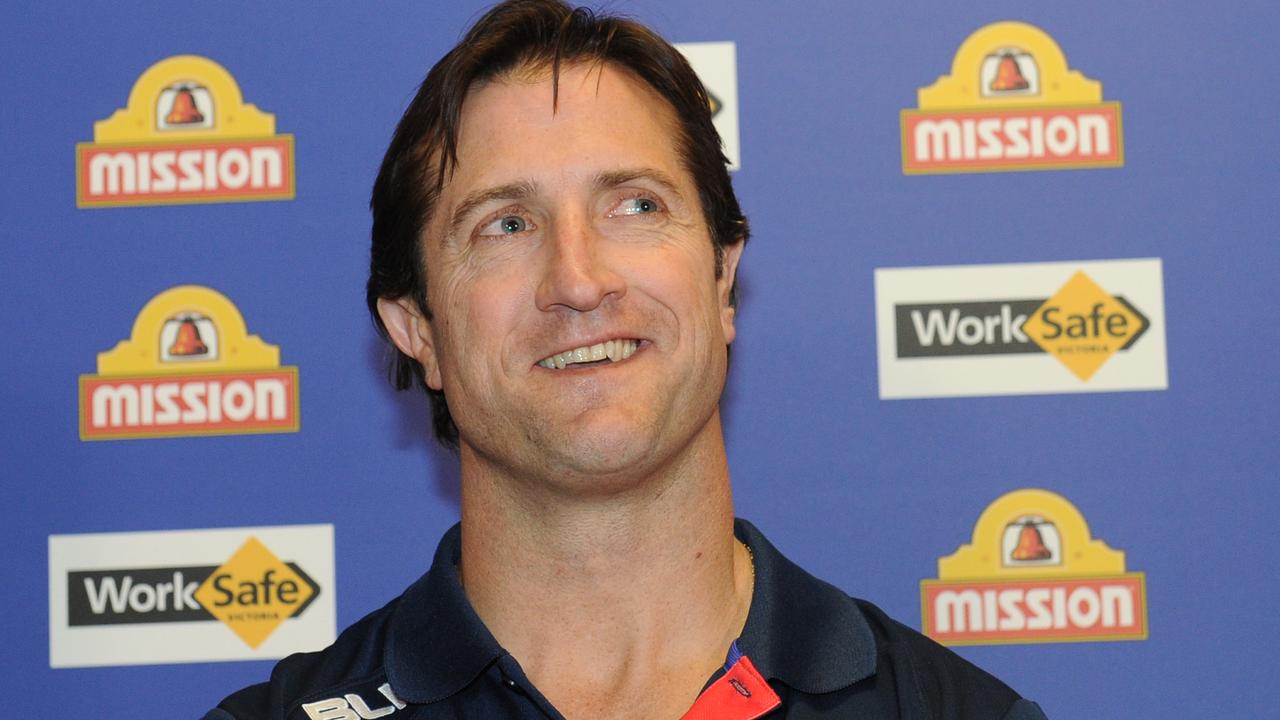
“I started to explore and discover and read more and worked out that metaphors are the centrepiece of storytelling,” Beveridge says on Barkly Street.
“When I coached at local level, I experimented a little bit with that.
“I think we all love escapism, creativity and getting away from the seriousness of even AFL football at times.
“You can take it too far at times.”
One such example was when he assigned each of the 22 primary tarot cards, which all have positive readings, to a player.
That included the death card.
St Bede’s/Mentone won that day, but only after leading by about six goals late in the game and hanging on by one straight kick.
“I’ve moved on from those extremes to things that probably relate to us a bit more,” Beveridge says on the podcast.
The themes are typically revealed to the players in Beveridge’s pre-match address.
At St Bede’s/Mentone he also likened each member of the squad to uncustomary AFL players.
Groves received West Coast Norm Smith medallist Andrew Embley.
“It was related to Embley being able to perform well in a number of different roles,” he says.
“I just remember it being on the board, just before a game.
“That was his way of getting you mentally ready to play and also keeping it fun.”
In his pre-game talk before the 2016 grand final win over Sydney, Beveridge told his players “Bring your instruments, your voice, your song.”
He wanted his charges to use their strengths because each of them were different.
“I don’t know how he does it but he continually finds a theme that would hook all the players in to get them all going in the same direction – he’s a master,” Morris says.
“There were games you’d come in and almost get a history lesson or an education session on different things, but he always brings it back to something everyone gets.”
Six months after the flag, Beveridge recited passages of the Dr Seuss poem Oh, The Places You’ll Go to describe the lead-in to the 2017 season, tweaking lines to relate to the Bulldogs.
Groves says almost everyone who meets Beveridge describes him as quirky.
“Just the way he thinks about everything, analyses everything,” he says.
“He will try the unconventional.”
Weightman says he is a little similar to Beveridge in that regard.
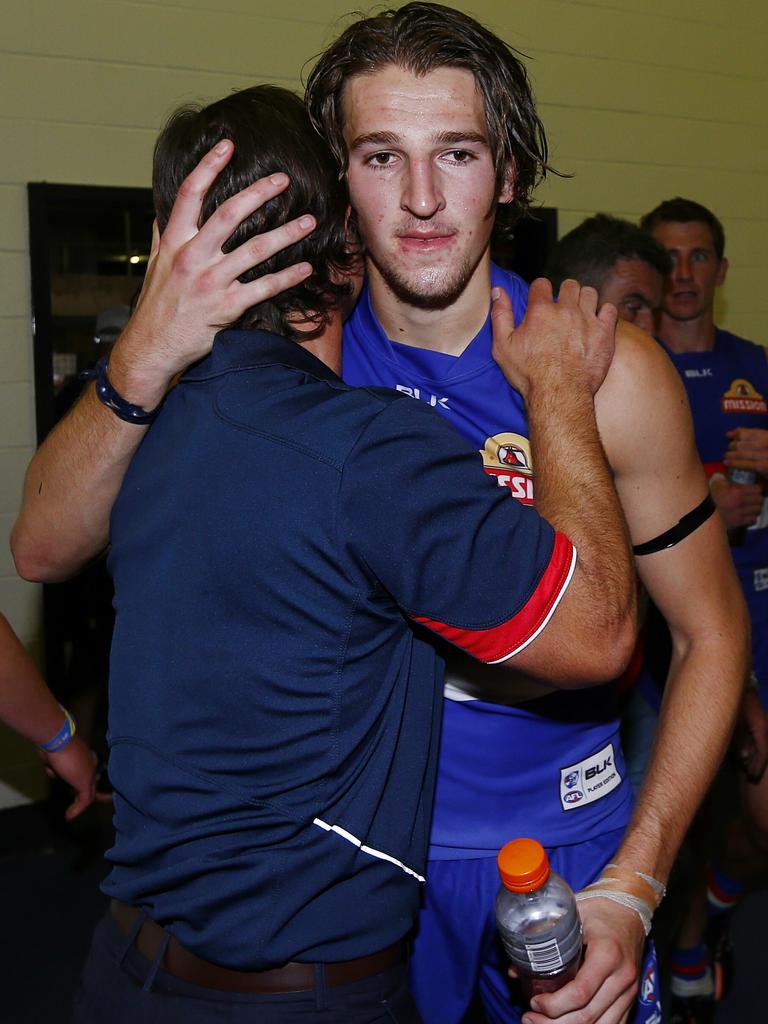
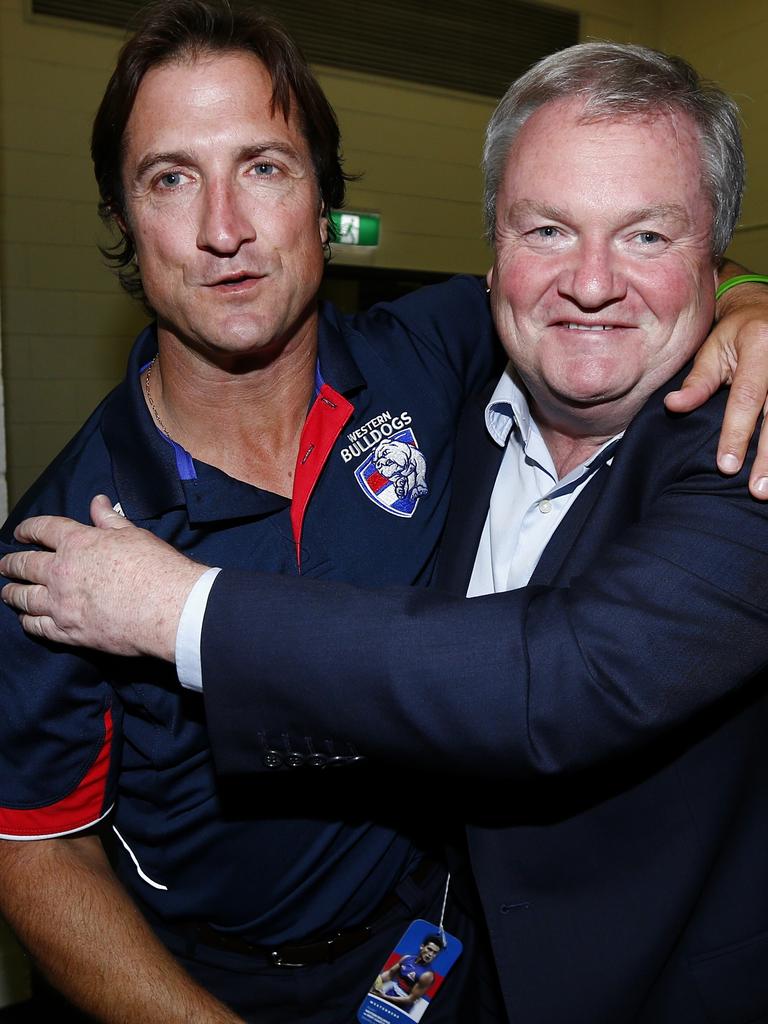
“You don’t know what is going to come when he’s speaking and I think he is an outstanding coach obviously and someone that I have really enjoyed being able to play under and connect with,” Weightman says.
Groves says Beveridge has always been big on fostering club culture.
Before St Bede’s/Mentone grand finals, he would invite Tigers great Vern Boag to train with the squad.
During the season, there were times the side did not even take to the track, instead having dinner together and playing cards at Beveridge’s insistence.
“You’d have 50, 60, 70 players hanging back on a Thursday night,” Groves says.
“The encouragement to socially be around each other was the core aspect of us achieving at a community level then and there’s a real focus on that even at the elite level.”
After the preliminary final win over Port Adelaide, the dimly lit Bulldogs rooms resembled a nightclub dancefloor as players sang Gala’s Freed From Desire.
“Seeing that, it was very similar to what was happening at St Bede’s in ‘06, ‘07, ‘08,” Groves says.
“Come off the field and once you’re in the change rooms, that’s when you can celebrate your efforts, keeping it humble but really understanding you’ve achieved something.”
Beveridge’s passion for the game is in his blood.
He also has winning and an eye for talent in his DNA.
His grandfather Jack Beveridge was a star centreman in Collingwood’s four premiership sides from 1927-30, dubbed ‘The Machine’.
Beveridge’s dad, John, was a long-time St Kilda recruiting manager.
After the 2014 season, Beveridge had committed to joining the Saints, where he played 45 games from 1996-99, but instead the Bulldogs lured him to replace Brendan McCartney.
He arrived from being Hawthorn’s defence coach for its back-to-back flags the previous two years and was player development manager at Collingwood when it won its 2010 premiership.
From 14th in 2014 and after losing captain Ryan Griffen to GWS, Beveridge took the Bulldogs to a semi-final in his first year.
He spotted the premiership cup at Perth Airport late in that first campaign and asked his team to visualise what it would mean to hold it aloft.
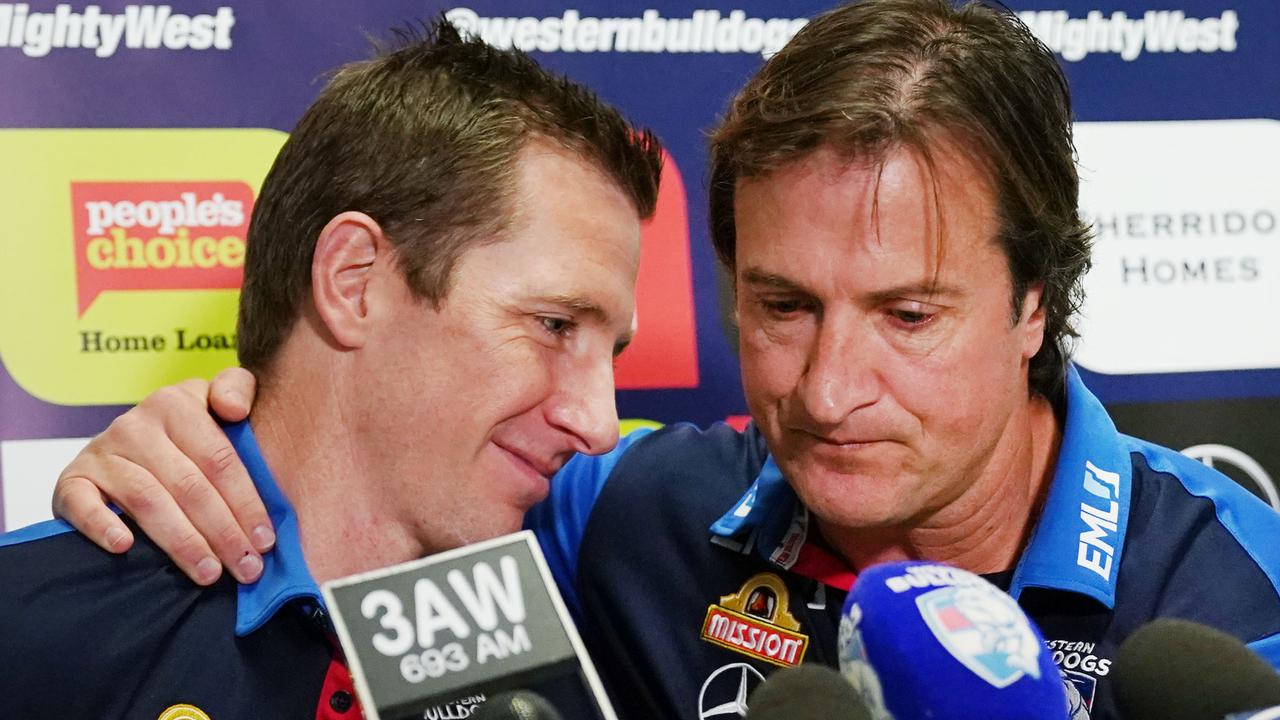
A year later, Beveridge and his charges were doing just that – 89 years to the day of his grandfather’s first grand final triumph.
Beveridge gave another of his hugs that afternoon, when he selflessly handed his premiership medal to injured captain Robert Murphy.
Bulldogs people will be hoping for more Beveridge stories, emotion, quirk and the success that has seemed to follow him when their side chases its third AFL flag on Saturday.
“Bevo and the coaching staff would just be emphasising what makes us a great team, we’ll back our structures and play our way, and our way is more than good enough,” Morris says.
GENIUS MOVES WHICH MADE A PREMIERSHIP CONTENDER
Jon Ralph
There have been many times since the 2016 premiership where it has been possible to build a case that Luke Beveridge captured lightning in a bottle for a fabulous four weeks.
To believe that for all of Beveridge’s brilliance in masterminding that drought-breaking premiership, the Dogs had found their mojo exactly when it mattered in a flag no one could ever take away.
But it seemed distinctly unlikely the club could, or would, be able to replicate the sacred deeds that turned the 2016 players into heroes.
SCROLL DOWN TO SEE THE SEVEN BEST COACHING PREMIERSHIPS
From 2017 to 2020, through the premiership hangover to Marcus Bontempelli’s finals mauling against Greater Western Sydney and the meek capitulation at the hand of St Kilda last October, the Dogs were mediocre.
In all that time, they spent 64 weeks outside of the top-eight and only 23 weeks in the eight — with just two of them in the top-four.
And yet, on Saturday night, Beveridge has the chance to join the likes of Mark Thompson, Denis Pagan and Malcolm Blight as a coaching great.
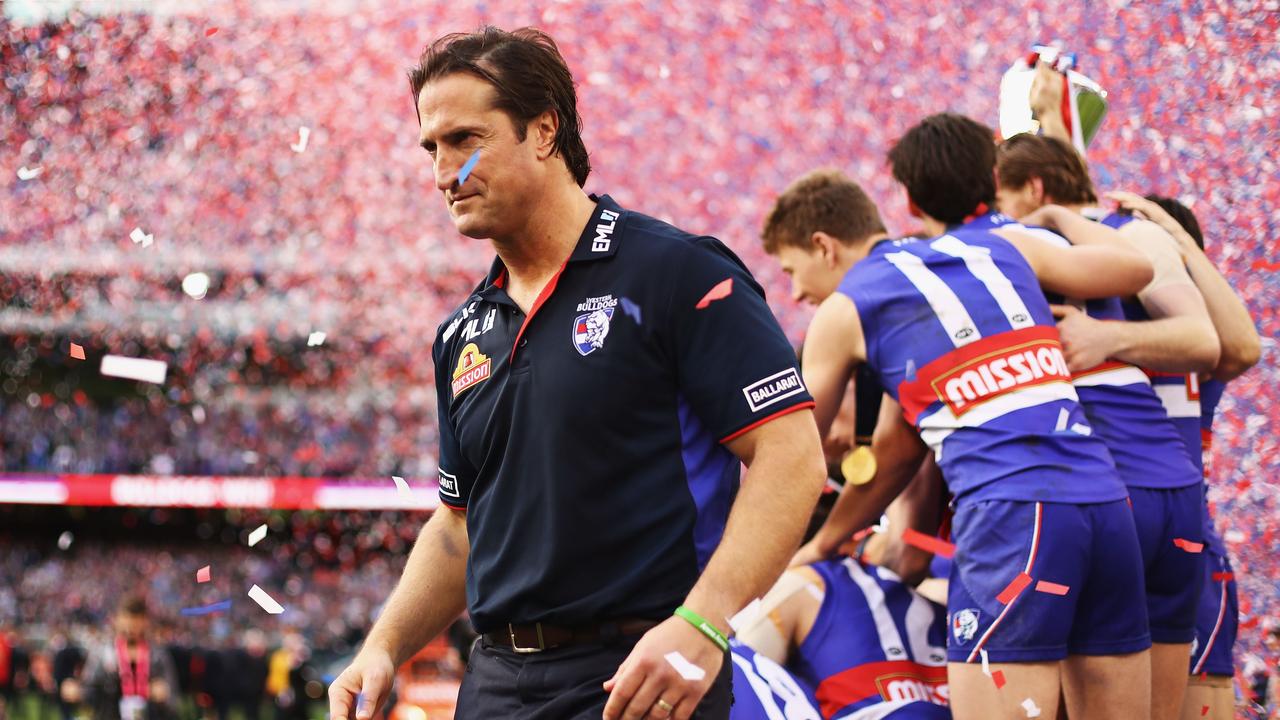
There are only 26 AFL coaches with multiple premierships and nine with a pair of flags, including John Coleman, Alan Joyce, Syd Barker and Phonse Kyne.
All of them have individual stories attached to their greatness.
Some assembled champion teams, some were master motivators, some tactical phenomenons.
But, if Beveridge manages to hold aloft the cup for a second time in seven completed seasons, his legacy will be established forever at just 51 years of age.
This September, all of the features of what makes Beveridge tick have been on show, and what a sight that has been.
The combative nature, sparring against state health authorities over access to grounds to fuel the us-versus-them narrative that has been so integral to this charge.
We have seen the intense bonding and togetherness of this Dogs side, singing and dancing in the rooms post-match, which has been a Beveridge strength all the way back to his St Bede’s VAFA sides.
He has had the capacity to draw out this club’s strengths and go back to their Bulldogs DNA after a trio of late-season losses that put their flag hopes in jeopardy.
Denis Pagan always says great players makes great coaches.
Of course it’s true, but Beveridge didn’t just build a great side and hang on for dear life.
Of the 2016 premiership side, only Bontempelli, Caleb Daniel, Lachie Hunter, Jason Johannisen, Jackson Macrae, Easton Wood, Tom Liberatore, Josh Dunkley and perhaps Zaine Cordy will play on Saturday.
It is a solid core, but it is not dripping with a long list of matchwinners, Coleman medallists or future Hall of Famers.
It is why the coaching feat of Beveridge deserves so much credit, especially after St Kilda put the Dogs to the sword in last year’s elimination final.
GRAND FINAL PREVIEW: PREDICTED TEAMS AND WHERE IT COULD BE WON
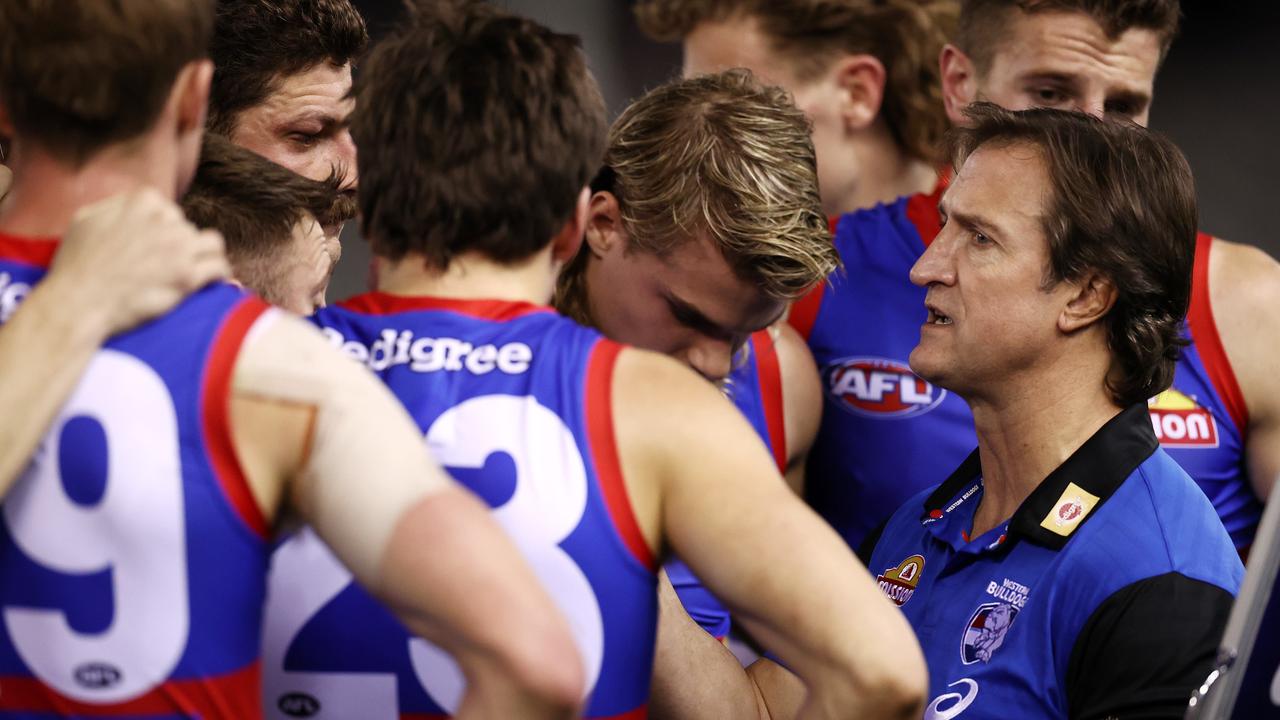
Fox Footy expert David King nailed the Dogs’ weaknesses that day.
“In the end the finals are an integrity test of where your shortcomings are, and they exposed the Bulldogs today. There’s some home truths at the Dogs that they’d be well aware of,” he said.
Beveridge went and found a ruckman in Stef Martin, got Adam Treloar for cheap, didn’t hand Cody Weightman games until he brought into the pressure side of the role.
He flicked Bailey Dale to half back, backed in Mitch Hannan’s early struggles and got a great finals game out of him.
He plugged gaps in the forward line when Josh Bruce went down, spun the magnets in a way that at times befuddles, and frustrates, supporters as Lewis Young rucked and Josh Schache played key back and Marcus Bontempelli drifted out of the midfield into the forward line.
He doesn’t always get those moves right, like any senior coach, with all that constant tinkering and experimentation.
But in both 2016 and this year, he has nailed his moves when it mattered.
From 2016 to 2021, Chris Scott has won six finals and secured 89 total victories.
Beveridge has won 71 matches with seven finals wins.
Yet if anything, those Grand Final charges, with Beveridge’s focus on storytelling and themes, have honed the narrative that so much of this club’s success is reliant on the senior coach’s gifts.
A second victory from outside the top four — no matter the slump that lost the Dogs the double chance — across five states this finals series will only add to the Beveridge legend.
A 72nd victory on Saturday night would make him the Dogs coach for as long as he wanted (Leigh Matthews’ guarantee as the Pies coach for life after 1990 lasted five more years), and put him up there in Dogs folklore with names like 1954 premiership coach Charlie Sutton and the beloved John Schultz and Chris Grant.
Those official Bulldogs legends maintain a lofty perch, but, if by Saturday night he has won two of three premierships in club history, that’s exactly where he deserves to be.
THE BEST PREMIERSHIPS COACHING PERFORMANCES THIS CENTURY
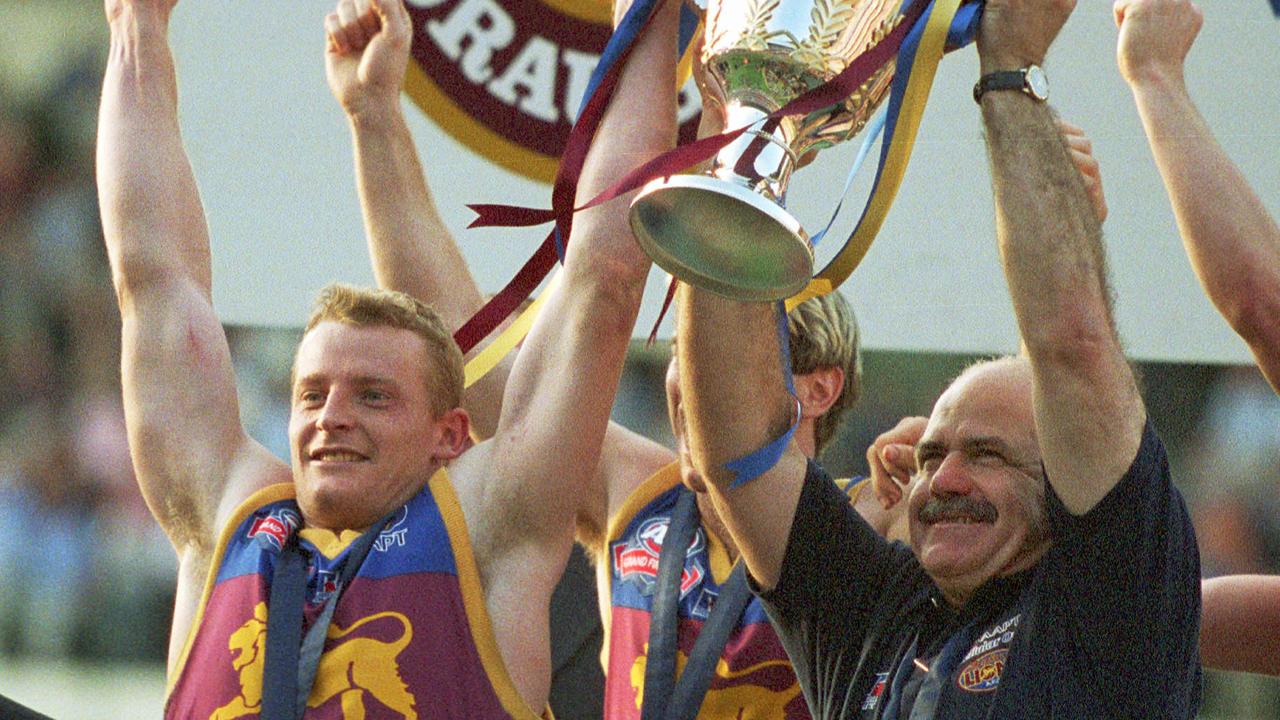
1. Leigh Matthews (2001, Brisbane)
Matthews brought down a team many believed was the mightiest of all, with Essendon coming off a near-perfect season in 2000 and seemingly on track for a dynasty. Mixing lethal force in his midfield, the brilliance of Jason Akermanis, no fancy tactics, just the essence of what makes premiership sides. And he handed us the best quote ever in football to kickstart the premiership charge: “If it bleeds, we can kill it.”
2. Alastair Clarkson (2008, Hawthorn)
In only his fourth season, Clarkson took an impetuous group of emerging stars all the way to the flag. He rocked the footy establishment with a never-before-seen defensive methodology, a star of the future in Cyril Rioli making magic on the MCG, an ageing Stuart Dew only shuffling forward through injury to become the six-minute man. And the victory came against a Geelong side that lost only its second game of the year and was on a 15-game winning tear.
3. Luke Beveridge (2016, Western Bulldogs)
The bolt from the red, white and blue. Beveridge played the pied piper as the injury-ravaged Dogs defied history by coming from seventh spot to break a 62-year drought before Beveridge gave his medal to fallen skipper Bob Murphy. His Dogs’ handball club featured a stacked midfield firing out blink-and-you-miss-it quickfire handballs to bamboozle Sydney before Dale Morris’ toppled Lance Franklin with a David-on-Goliath tackle that saw Tom Boyd deliver the sealer. We can never forget this team went into their first final as rank outsiders against West Coast.
4. Damien Hardwick (2017, Richmond)
He might have had the best player in the comp in Dustin Martin and a side which would eventually establish a dynasty. But Hardwick had his fingerprints all over this win, from his revolutionary swarming tactics to his focus on authenticity to his forward line with Jack Riewoldt and a bunch of small forwards. And the Tigers knocked over an Adelaide side which entered the game as the resounding favourites on grand final day.

5. Mark Thompson (2007, Geelong)
The utter dominance of the victory should not detract from Mark Thompson’s leadership brilliance, enduring the 2006 review into his coaching before his team mastered the run-and-gun style as they turned AFL into the beautiful game. It was another premiership drought broken this century as the Cats sauntered to a 119-point victory that would be the first of three premierships in a five-year run.
6. Paul Roos (2005, Sydney)
Roosy did it his way, embracing a game plan that AFL CEO Andrew Demetriou described as “unattractive” in May that year. But Roos’ strategy came up big against an Eagles outfit boosting the brilliance of Chris Judd, Ben Cousins, Daniel Kerr and Dean Cox. Sydney played a stoppage and tackle-heavy game that was beautiful given its rewards as Roos’ mob broke a 72-year premiership drought. And the Swans did it the hard way after a qualifying final loss to West Coast before peeling off three finals wins against Geelong, St Kilda and the Eagles.
7. Mark Williams (2004, Port Adelaide)
Anyone who didn’t live in Adelaide through the early 2000s didn’t know the pressure on Port Adelaide after all those minor premierships and all those finals flops. Williams’ Power side rocked the Lions on their way to a four-peat despite the loss of skipper Matthew Primus in Round 3. They eventually dominated the Lions in a 40-point victory before Choco’s theatre on the boundary as he pretended to choke himself before his “Alan Scott, you were wrong” crack at the club’s major benefactor on the premiership dais. There is tactical wizardry and then there instilling the belief that your players are good enough despite all that has happened in previous seasons. Williams had it in spades.
More Coverage
Originally published as Luke Beveridge’s journey to master AFL coach started in the VAFA with St Bede’s/Mentone




